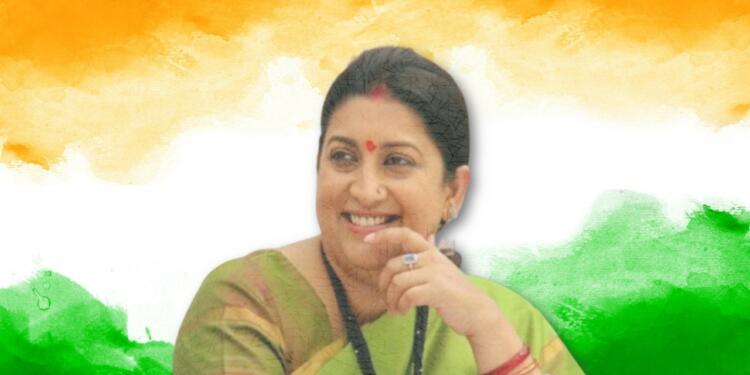The Union Ministry of Minority affairs till yesterday that is 6th July was headed by Mukhtar Abbas Naqvi. Following the end of his parliamentary tenure, Naqvi resigned from the post on Thursday. Post his resignation, the additional charge of the minority ministry was handed over to Union Women and Child Development Minister Smriti Zubin Irani.
While the complete focus of the ‘established’ renowned media outlets are focused on Naqvi’s resignation as post his resignation, there will no Muslim minister in the Narendra Modi cabinet and among the BJP’s 395 members of Parliament. Today, I here want to shift the focus on the subtle hint dropped by the Modi government by choosing Irani. But first, let’s understand the ‘importance’ of a minority affairs ministry in a secular state.
The requirement of a Minority Ministry in a country like India
India according to the 42nd constitutional amendment introduced by the Government of India in 1976 is a Secular state. This simply applies that the Indian state has no religion. According to the Constitution of India as well everyone is equal before the law and it guarantees fundamental rights, thus emphasising that no citizen is above the other.
Looking at the above legalities mentioned in the Indian constitution, there is no valid reason that can be cited for the establishment of a minority ministry altogether. Ministries like these are only a necessity in a state that follows a particular religion as there lies a need to protect the rights of community less in population.
Every citizen deserves and enjoys equal rights in India and the mere existence of separate ministries like the aforementioned one can be counted as an unnecessary entity in a secular country.
Smriti Z Irani: The MINORITY Minister
Prime Minister Narendra Modi and his government excel at masterstrokes, be it the nomination of Droupadi Murmu as NDA’s presidential candidate or assigning the minority ministry to an MP who belongs to a community which is a minority among the minorities. The pick is such that even the political enemies cannot challenge the decision in fear of potraying wrong image of their party.
Read More- Six times when Smriti Irani humbled her opponents in a ruthless manner
Smriti Zubin Irani; born as a Malhotra and having allegiance to Vishwa Hindu Parishad, is the perfect pick for the post vacated after Naqvi’s exit. The reason behind this is that Irani belongs to the Parsi community, which accounts for just 0.006 per cent of India’s population and is a minority in the minorities.
The pro-Hindutva leader who wears her identity on her sleeves and calls for Hanuman Chalisa during her parliamentary speech will now be heading the Waqf Council of India as the union minister in charge of the minority affairs becomes the ex-officio chairperson of the council.
PM Modi’s pick has a subtle message
PM Modi believes in political messaging and symbolism and that is evident from time to time. Whether his Indian attire or gifts to foreign dignitaries, every step taken by him has a message, a message that only the wise can catch.
The appointment of a Parsi woman as the minority affairs minister of India is a bold step in itself, as in India minority had become synonymous with Muslims. The term minority was widely used to denote the Muslim community in the country, when the Muslims account for around 15 per cent according to the 2011 census. On the other hand the population share of other minorities like Christians, Sikhs and Jains lies at 2.3 %, 1.7 % and 0.4 % respectively.
Muslims: No more a minority
The community that today has the minority minister accounts for just 0.006% of the total population. Despite the above figures, the actual minorities were long ignored by the Congress party as the Gandhi-Nehru family was busy in appeasement politics, as Muslims formed a major vote-bank for the Congress party. The Congress busy in appeasement and tokenism ignored the actual minorities and thus the hegemony of the Muslim community was established in the Minority ministry with time.
Read More- The time is now to define the term ‘Minority’ in the Indian constitution
With minimum common sense it can be understood that a community that accounts for around 15 per cent of the total population, that must have increased in the last 11 years cannot be ‘the minority’ of a country. Adding to that the constitution also conceives ‘minority’ as an open category to protect the interests of various religious, linguistic and culturally distinctive groups.
There was a need to convert back the ministry to minority affairs from Muslim affairs and the Modi government has taken the first step towards that.
Support TFI:
Support us to strengthen the ‘Right’ ideology of cultural nationalism by purchasing the best quality garments from TFI-STORE.COM



























